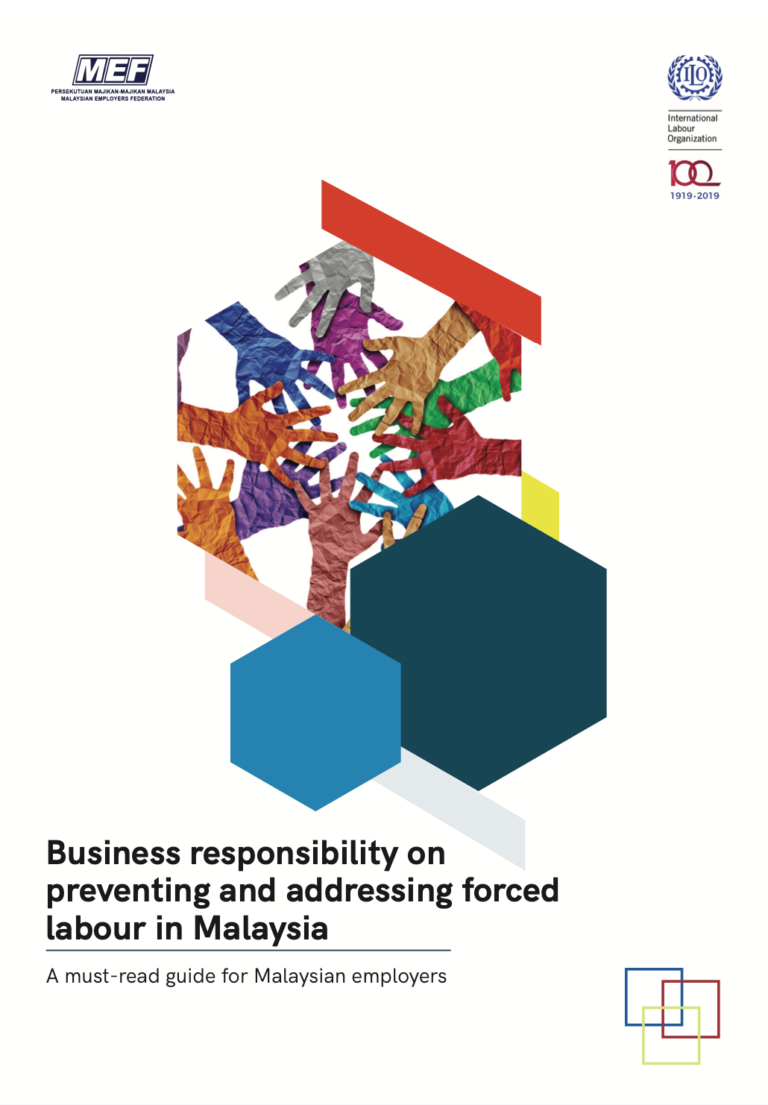This guide for employers, jointly developed by the Malaysian Employers Federation (MEF) and the International Labour Organization (ILO) through the project From Protocol to Practice: A Bridge to Global Action on Forced Labour, aims at providing practical guidance to employers on how to identify risks of forced labour in company recruitment, employment and sourcing practices, and how to effectively prevent and eliminate these risks. This reference guide is intended for company managers and staff responsible for human resources management, social and legal compliance issues at the enterprise level.
This guide is the product of desk research and field work in Malaysia including stakeholders consultation and the adaptation of available resources on forced labour, including Q&As on business and forced labour from the ILO Helpdesk for Business on International Labour Standards.

